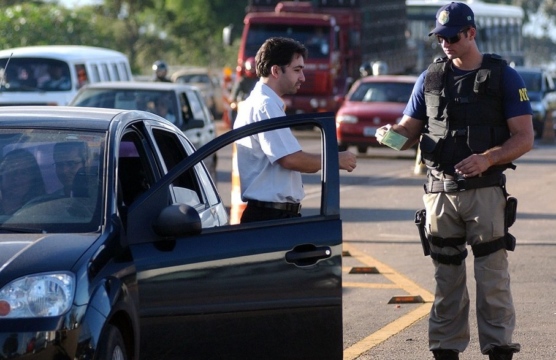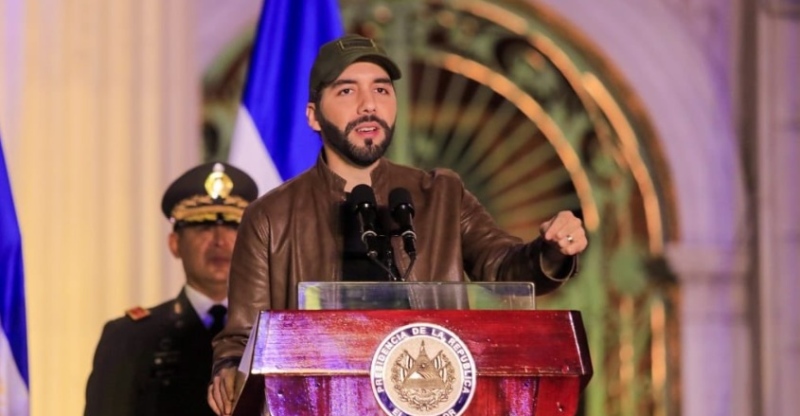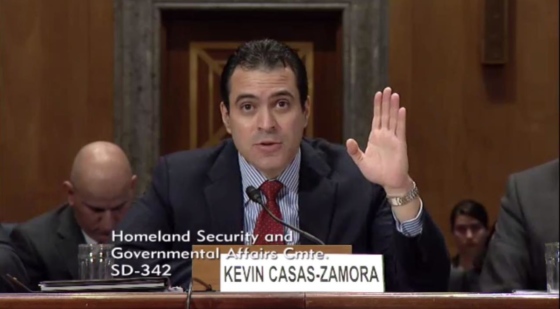
Brazil’s Pending Security Challenges
With roughly 50,000 murders a year for the past decade, Brazil is one of the world’s most violent countries.
A Daily Publication of The Dialogue
Salvadoran President Nayib Bukele on Feb.11 vowed to abide by a Supreme Court order that he stop pressuring lawmakers to pass a $109 million loan he is seeking to fight criminal gangs. His statement came days after he deployed the military to the Legislative Assembly in a show of force, sparking national and international criticism and calls for Bukele to respect democratic institutions. What is behind Bukele’s display of military force in El Salvador’s congressional building? Is it as alarming as the opposition, several foreign governments and human rights groups have suggested? What are the security policies Bukele is proposing, and why are they facing pushback from legislators?
Mari Carmen Aponte, former U.S. ambassador to El Salvador and former acting assistant secretary of state for Western Hemisphere affairs: “It is difficult to understand President Bukele’s motivation to send troops to El Salvador’s legislature. In the best light, his actions represent an impatient, impetuous and irreverent executive. But in the darkest analysis, he is following strongman instincts to unbalance El Salvador’s branches of government. His broad base may be tempted to support his actions against congress, known for serious pockets of corruption, but Bukele’s brute show of force violated the Inter-American Democratic Charter, a transgression the Organization of American States and leading democracies in the hemisphere could have more fervently highlighted. Bukele, a talented politician, should understand better than most that fair interim elections, not physical intimidation, best turn over a congress. Unfortunately, this episode only produced loser scenarios. El Salvador missed out on foreign investment that could fight crime and, ironically, Bukele damaged his relatively unsullied international reputation. The president’s logic that the legislature is undermining his security policy is invalid when all his budget proposals for security in this year’s general budget were recently approved. A few weeks ago, a new loan containing an additional $91 million for security was approved. The loan package that provoked President Bukele’s baffling actions included helicopters and other big-ticket items that naturally require explanations, justifications and negotiations. In other words, the legislature was engaged in its appropriate constitutional role of checks and balances, and it likely would have eventually passed the bill. El Salvador endured a long civil war to gain the democracy it enjoys today. Even millennials who did not participate in the horrors of that fratricide learned precious historical lessons about the value of keeping the country stable and at peace. Some of them sit in Bukele’s cabinet. The president looks at them but does not appear to see or hear them. He may do well to open his eyes and ears now.”
Yulia Vorobyeva, post-doctoral research fellow at the Kimberly Green Latin American and Caribbean Center at Florida International University: “The Central American Bank for Economic Integration preapproved the loan to finance Phase III of Bukele’s security plan, which required legislative approval. After the lawmakers requested that the president provide more details on military and police spending, his Council of Ministers called for a mandatory extraordinary legislative session to pass the bill immediately—a measure reserved for national emergencies. Legislators denied the need for such an emergency. In response, the president marched into the congressional building, flanked by the military and the police, and occupied the legislature president’s seat, addressing God and a minority of loyal congressmen present in the chamber. The move was an attempt to project power over other independent branches of government in view of the 2021 legislative elections. Although Bukele holds only a minor fraction of the legislature, lawmakers would likely have approved this loan as they have done with previous loans. However, the moment presented Bukele with an opportunity to show the congressional opposition in a negative light and sway future election results in his favor. Bypassing the established constitutional procedures is a thorny method that may result in further polarization within the government and a political confrontation. Bukele’s populist style of ruling exacerbates the public’s disrespect for the already unpopular parliament and lays the ground for overthrowing the institutional achievement of the past three decades. Finally, the display of military force in political activities is alarming for a country still in the process of recovering from a bloody civil war.”
Tiziano Breda, analyst for Central America at the International Crisis Group: “Bukele’s bid to strong-arm the Legislative Assembly into approving a loan to finance police and military equipment by occupying it with soldiers marked the president’s most extreme effort yet to exert unquestioned political control over El Salvador’s democracy and force the discredited traditional parties that dominate parliament into submission. His government’s outstanding security achievements, with homicides plummeting by around 60 percent since he took office, have earned him a sustained 90 percent approval rating during his first eight months. This appears to have given him the confidence to engage in open confrontation with the legislative body, controlled by weakened political parties, some of whose high-ranking members have been tarnished by recent investigations over alleged negotiations with gangs for electoral gain. However, Bukele’s decision to spend his political capital on a military occupation of the Assembly and his effort to stir up supportive crowds was misguided. It raised deep concerns about the recklessness of the president and his team, who grossly miscalculated the repercussions of their actions, and the message they sent about fealty to democratic norms. The occupation also created another precedent for the use of security forces for political ends in a region where—from Honduras to Chile to Nicaragua to Venezuela—this risks becoming a destabilizing trend. It is now up to Bukele to defuse the crisis that he created. Although his popularity remains high, he has lost sway over some of his supporters, who now feel emboldened to threaten legislators with an uprising if they do not get their way, even without the president’s active encouragement. It will be especially important for Bukele to work on restoring respect for El Salvador’s democratic institutions within El Salvador and confidence in his stewardship of them among foreign partners. He should commit to abiding by the law, foreswear the use of the military for political ends and work to convince his supporters to desist from harassing the legislature with threats that can only undermine the political stability that the country needs.”
Editor’s note: The Advisor requested a commentary for this Q&A from the Salvadoran Embassy in Washington but did not receive a response.
 The Latin America Advisor features Q&A from leaders in politics, economics, and finance every business day. It is available to members of the Dialogue’s Corporate Program and others by subscription.
The Latin America Advisor features Q&A from leaders in politics, economics, and finance every business day. It is available to members of the Dialogue’s Corporate Program and others by subscription.
With roughly 50,000 murders a year for the past decade, Brazil is one of the world’s most violent countries.
CONGRESSIONAL TESTIMONY AS SUBMITTED FOR RECORD AND DELIVERED BEFORE A FULL COMMITTEE HEARING OF THE US SENATE COMMITTEE ON HOMELAND SECURITY AND GOVERNMENT AFFAIRS. Over the past five years, slightly over 100,000 unaccompanied migrant children from Guatemala, Honduras and El Salvador have been apprehended at the US southern border. They are but…
During the last decade, there has been significant improvement in Salvadorans education, in an international context which reaffirms the importance of education as key strategy for the progress of nations. The Educational Reform, promoted since the 90s, has obtained initial achievements in expanding the access of education, improving quality of…
 Salvadoran President Nayib Bukele this month sent troops into the country’s Legislative Assembly as lawmakers were considering his request for a loan to fight gangs. // File Photo: Salvadoran Government.
Salvadoran President Nayib Bukele this month sent troops into the country’s Legislative Assembly as lawmakers were considering his request for a loan to fight gangs. // File Photo: Salvadoran Government.
 Video
Video